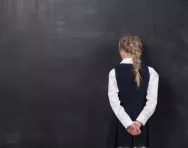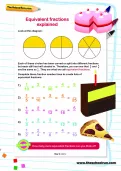Important update from TheSchoolRun
For the past 13 years, TheSchoolRun has been run by a small team of mums working from home, dedicated to providing quality educational resources to primary school parents. Unfortunately, rising supplier costs and falling revenue have made it impossible for us to continue operating, and we’ve had to make the difficult decision to close. The good news: We’ve arranged for another educational provider to take over many of our resources. These will be hosted on a new portal, where the content will be updated and expanded to support your child’s learning.
What this means for subscribers:
- Your subscription is still active, and for now, you can keep using the website as normal — just log in with your usual details to access all our articles and resources*.
- In a few months, all resources will move to the new portal. You’ll continue to have access there until your subscription ends. We’ll send you full details nearer the time.
- As a thank you for your support, we’ll also be sending you 16 primary school eBooks (worth £108.84) to download and keep.
A few changes to be aware of:
- The Learning Journey weekly email has ended, but your child’s plan will still be updated on your dashboard each Monday. Just log in to see the recommended worksheets.
- The 11+ weekly emails have now ended. We sent you all the remaining emails in the series at the end of March — please check your inbox (and spam folder) if you haven’t seen them. You can also follow the full programme here: 11+ Learning Journey.
If you have any questions, please contact us at [email protected]. Thank you for being part of our journey it’s been a privilege to support your family’s learning.
*If you need to reset your password, it will still work as usual. Please check your spam folder if the reset email doesn’t appear in your inbox.
School exclusions: everything primary-school parents need to know

Every year, around 6,685 children are excluded from school, and while it may seem the sort of thing that only happens in secondary schools, 20% of them are under 12.
Children can be excluded from school as a punishment for bad behaviour. The exclusion may be temporary (fixed term, otherwise known as suspension) or permanent (also known as expulsion).


Start a unique learning programme!
- Weekly programme for each school year
- Worksheets sent direct to your inbox
- Keeps your child's learning on track
The decision to exclude a child is taken by the headteacher, although they're likely to consult with their teacher and other staff such as teaching assistants and lunchtime supervisors to gather their opinions. Exclusion should only happen as a last resort and after a thorough investigation.
What is a fixed period exclusion?
A fixed period exclusion is where your child is temporarily removed from school. They can only be excluded for a maximum of 45 school days in any one school year, even if they've changed school.
If your child is being excluded, the school will let you know as soon as possible, usually by phone. Exclusions start on the same day, but the school can't insist that you collect your child before the end of the school day. If you're unable to pick them up straight away, they'll be kept in isolation at school.
You'll receive a letter setting out why your child has been excluded and for how long.
If your child is excluded for a fixed period, their school should set and mark their work for the first five school days. Your child must not be seen in a public place in those five days, unless it's for a valid reason (such as a doctor's appointment). If they are, you could be prosecuted and fined £60.
If your child is excluded for more than five school days, the school must arrange suitable full-time education from the sixth school day, for example at a pupil referral unit.
What is permanent exclusion?
A permanent exclusion means your child is expelled. It should only happen if there has been a serious breach or persistent breaches of the school's behaviour policy (which you'll find on their website) and if allowing the child to stay in school would harm the education or welfare of others, including pupils and staff.
As with fixed term exclusion, your child must not be in a public place in the first five days after being excluded.
From the sixth school day, the local authority must provide alternative full-time education.
If you want to appeal the exclusion, your child must not be removed from the register of their school until the Independent Review Panel has reached an outcome.
School exclusions: are the rules different for primary and secondary schools?
No, the same procedures apply. But be aware that schools can have differing opinions on what sort of incidents justify exclusion. These should be clearly set out in their behaviour policy and made available for parents to see.
Lawyer Anita Chopra, an expert in educational issues and partner at Match Solicitors, says: ‘A lot of schools have zero tolerance on violence, drugs, alcohol and offensive weapons – these can be real triggers as far as permanent exclusion goes, as can persistent bad behaviour and breaches of the behaviour policy.’
Many of these are issues that affect secondary schools rather than primary schools, which explains why secondary schools have higher rates of exclusion. But the rules surrounding the exclusion process are exactly the same for primary schools.
Should you appeal against your child's exclusion?
It's not unusual for parents to feel that their child has been unfairly excluded. In this case, you may want to appeal the decision. Grounds for appeal include:
- If the exclusion is 'informal' – for example, if the child has been sent home to 'cool off' rather than being officially excluded. This is unlawful, even if you agree to the exclusion.
- If the child has been discriminated against because of their sex, race, disability (including special educational needs), religion or beliefs, sexual orientation or gender reassignment.
- If the child is excluded because of their academic ability or attainment.
- If the pupil is excluded because of their parents' actions (e.g. if they've threatened a member of staff).
In addition, if you're not notified of your child's exclusion in writing, including details of the duration of the exclusion, the reasons for it, and your right to appeal, their exclusion is unlawful and may be overturned.
It's also unlawful to exclude a child for an unspecified length of time.
How to appeal a fixed term exclusion
If your child is excluded for a fixed term over five days, or if they're going to miss a public exam or a National Curriculum test (such as SATs), you can ask the school's governing body to overturn the headteacher's decision.
If they're excluded for fewer than five days, you can make a complaint to the governors, but they can't overturn the decision. ‘You may not be granted a hearing, but if you think your child has been unfairly treated, you can write a letter outlining your reasons and ask for it to be kept on your child’s school file,' says Anita.
How to appeal a permanent exclusion
If your child is permanently excluded from school, you’ll be invited to a review meeting with the governors within 15 school days.
If the governors don’t overturn the exclusion, you can ask for an independent review by your local council (or the academy trust, if the school is an academy). The governing body will tell you how to do this.
If your child is still excluded, you can ask the Local Government Ombudsman (or the Education and Skills Funding Agency if the school’s an academy or free school) to look at whether your case was handled properly.
What if your child is sent home for a school uniform infringement?
This is not categorised as an exclusion. If a child is told to go home to change out of shoes or clothing which don’t adhere to the school’s stated uniform policy, the action by the school is called an authorised absence.
What are the consequences of having an exclusion on your child’s school record?
‘An exclusion is seen as a blot on a child's record,’ says Anita. ‘But the circumstances of how it came about should be considered carefully by any prospective headteacher, as well as any representations that have been made by the parent against the exclusion.
'In reality, it rarely affects the child’s future education unless they are permanently excluded twice from different schools.’
School exclusions: advice and support for parents
For more information about school discipline and school exclusions read the Department for Education's guide to making a complaint about an exclusion, get free legal advice from the Coram Children's Legal Centre or contact ACE Education Advice & Training, an organisation that provides independent advice and information for parents on education issues in England.








